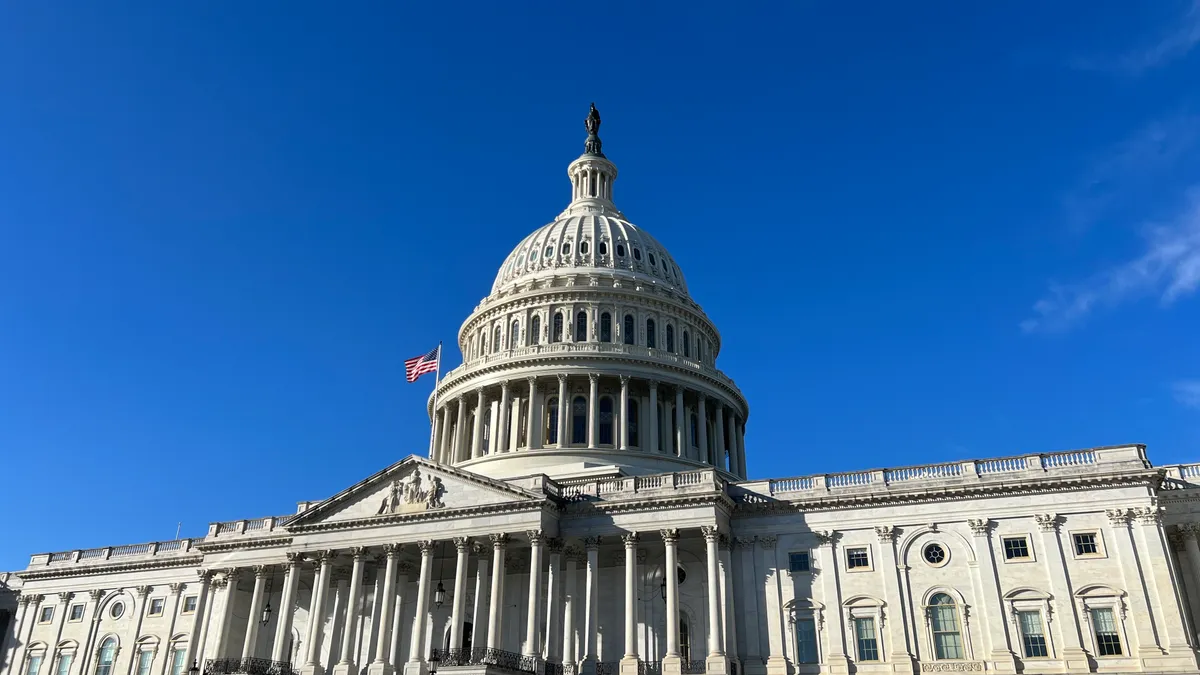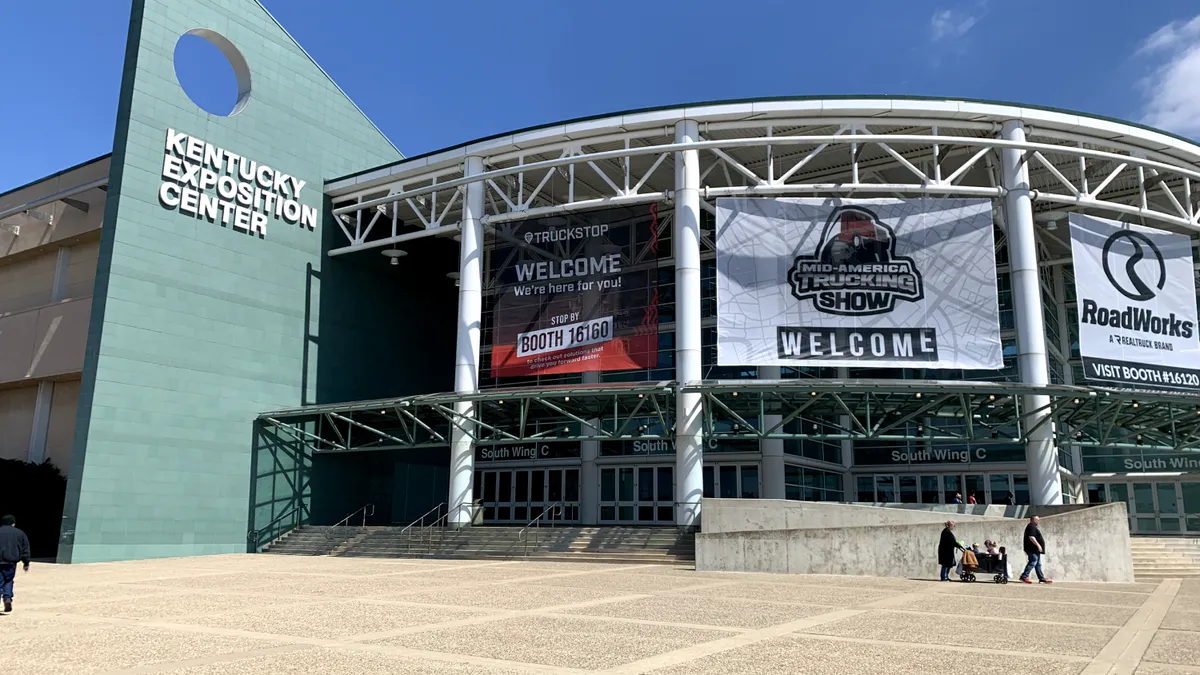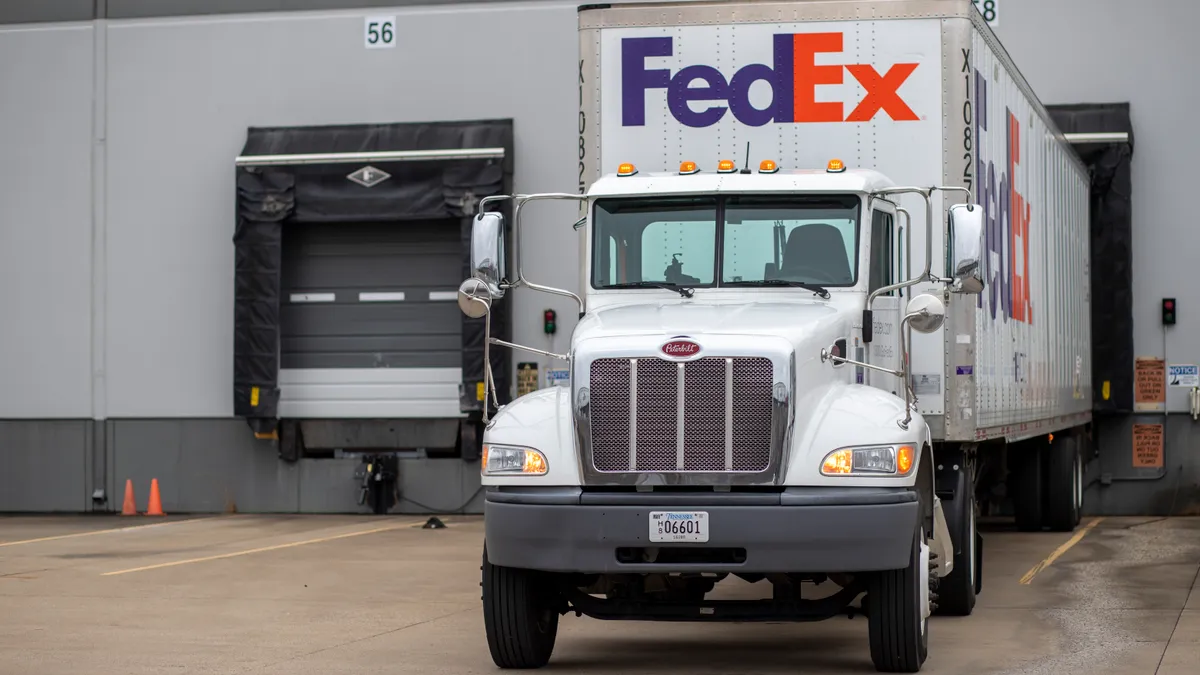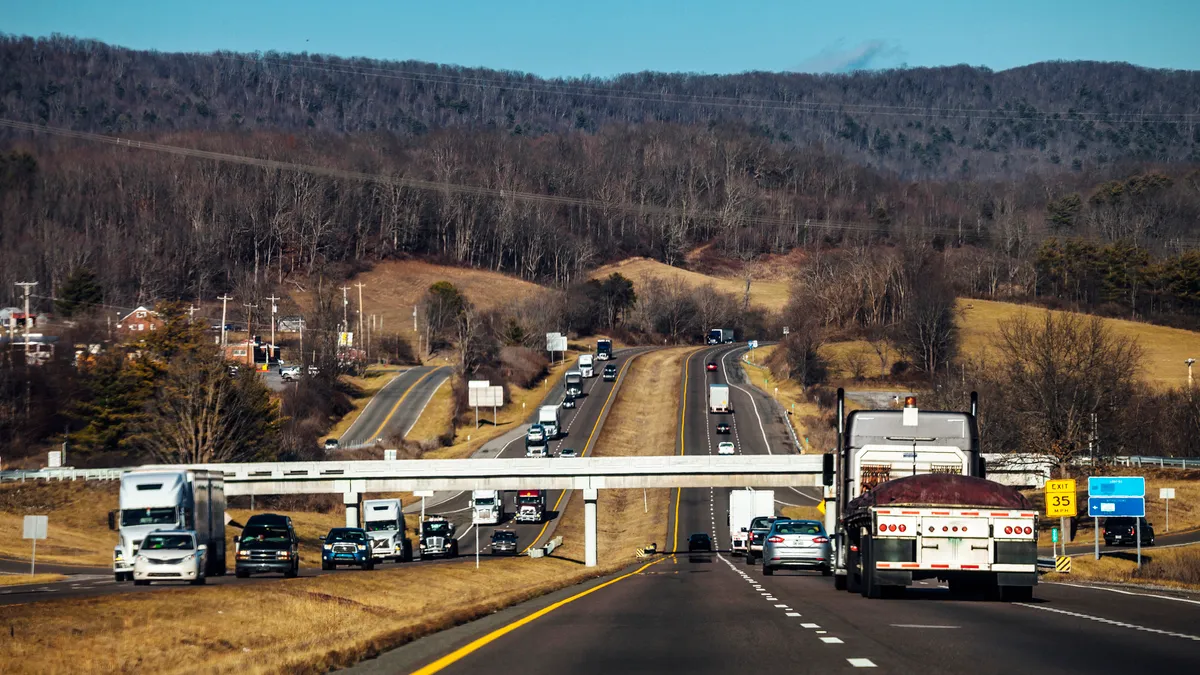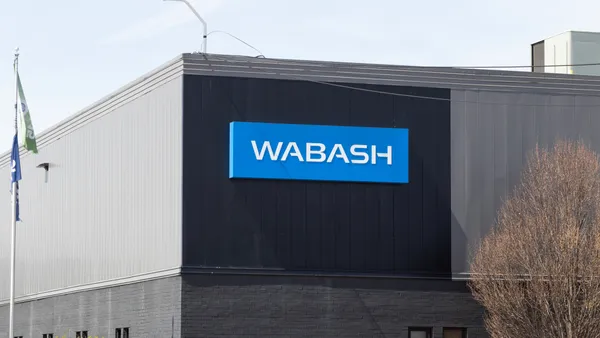The American Trucking Associations failed to get federal excise tax repeal included in a bipartisan, $79 billion tax relief bill passed by the House last week.
But the association supports the tax bill nevertheless, and it is holding out hope. The ATA will continue to advocate for the repeal of the tax on new trucks as the legislation proceeds to the Senate for consideration.
“The fight continues,” ATA VP of Public Affairs and Press Secretary Sean McNally said in an email.
In an uncertain election year, the House surprised many by passing the bill in a 357-70 vote Wednesday.
Repealing the excise tax would lower the cost of a new truck by 12.5%, according to the association. ATA President and CEO Chris Spear had expressed confidence to Trucking Dive about the group’s chances of accomplishing the longtime goal by means of the tax bill.
The bill, as-is, would improve the child tax credit, create incentives to promote economic growth, and provide special rules for taxing residents of Taiwan with income from U.S. sources.
‘We are well positioned’
During a Jan. 26 interview just days before the vote, Spear said he had “a high degree of confidence” the association would be able to celebrate wins on behalf of its members this year.
His outlook on attaching excise tax repeal to the tax bill was similarly optimistic.
“We have bipartisan legislation in both the House and Senate finance committees, Ways & Means and Finance, and we are well positioned, if there is a tax bill to move, [for] getting this attached to it,” Spear said.
Repealing the tax would result in average savings of $25,000 per truck that could be reinvested into equipment, safety, technology, training and pay, among other uses, Spear said.
The trade group has argued reducing new truck prices would better incentivize fleets to adopt low-emissions trucks than zero-emissions requirements like those developing in California.
“These are things that will make a difference,” Spear said.
Highway Trust Fund questions
The Owner-Operator Independent Drivers Association opposes federal excise tax repeal. The group is concerned the government would only create another — perhaps even more expensive — tax on trucking in its place.
“At the end of the day, what's the offset going to be?” OOIDA EVP Lewie Pugh said in an interview last week. “I’ve never seen our government say ‘Oh, we’re not going to tax you no more. We’re just going to do away with this.’”
Plus, it’s a tax small business owner-operators don’t care as much about repealing. The reason? They often don’t pay it, Pugh pointed out: They tend to buy used trucks, unlike corporate fleets that buy new.
Truck purchases generated over $7 billion in tax revenue for the federal Highway Trust Fund in fiscal year 2023, according to the Eno Center for Transportation.
“I don’t think our government is just going give that kind of money up without hitting trucking somewhere else,” Pugh said in a follow-up email.
Uncertain road ahead
The bill’s prospects of becoming law are tough to predict. While the Senate is in session this week, it’s unclear when — or whether — the bicameral legislation might make it to the floor for a vote.
Excise tax repeal’s chances of making a Senate version of the tax legislation are just as uncertain.
Most observers “would have told you as recently as a month ago that this bill was destined to die in negotiations or collect dust on a shelf if it ever got introduced,” said Senate Finance Committee Chair Ron Wyden, the Senate bill’s sponsor, in a statement after the House version passed.
The tax bill would help 16 million kids from low-income families, Wyden said, and he plans to work with Democratic Senate Majority Leader Chuck Schumer and senators of both parties to “get this done as soon as possible.”



